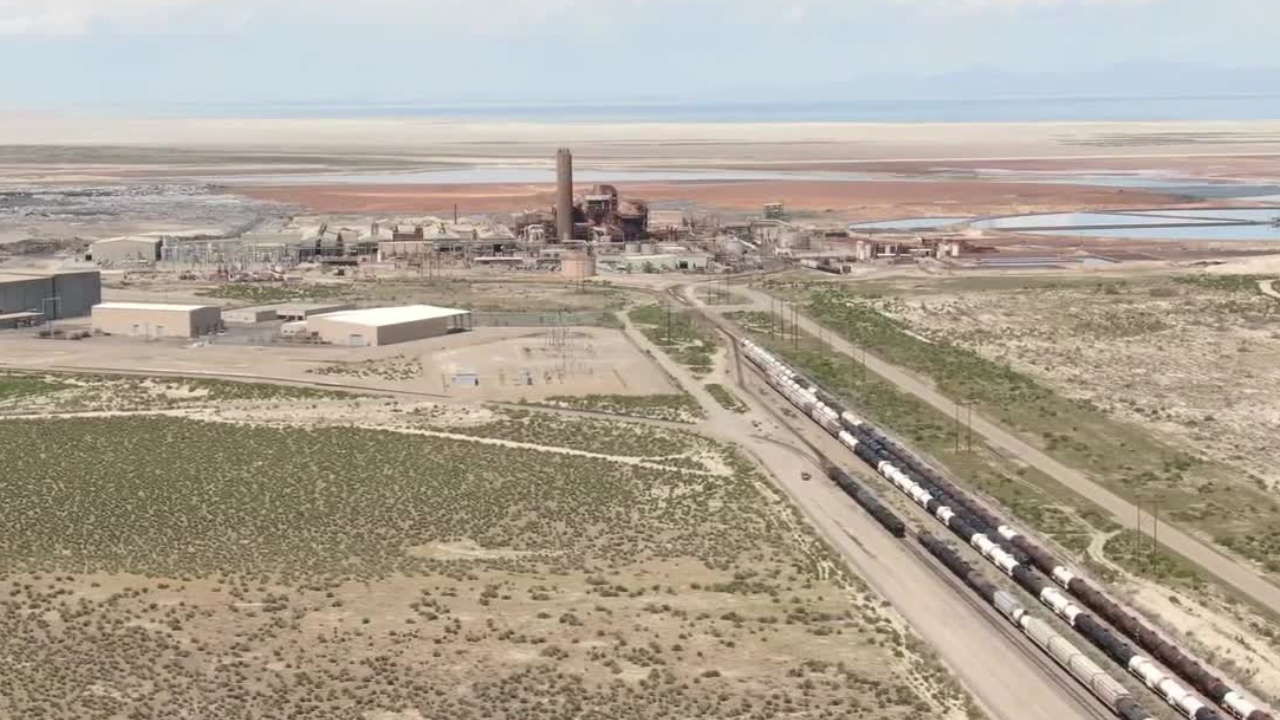SALT LAKE CITY — A hearing to decide whether to terminate US Magnesium's leases on the Great Salt Lake has been delayed in light of the company's bankruptcy filing.
"Due to US Magnesium’s bankruptcy filing, today’s administrative hearing on the cancellation of the mineral lease will not occur and will likely be rescheduled in the future. The Division is working with our legal counsel to ensure the State’s interests in the bankruptcy proceedings are fully represented and protected," the Utah Division of Forestry, Fire & State Lands said in a statement Friday.
A spokesperson for the company did not immediately respond to an email from FOX 13 News seeking comment on Friday.
The division sued US Magnesium, alleging that as the company has shut down some operations at its plant on the shores of the Great Salt Lake, it has failed to ensure that a waste pond containing hazardous chemicals was secured and put the public and environment at risk. US Magnesium has fought the allegations and tried to reach a settlement with the state.
When settlement talks failed, the Division of Forestry, Fire & State Lands moved to terminate US Magnesium's leases which could effectively put it out of business.
Earlier this month, US Magnesium filed for Chapter 11 in Delaware. In a declaration filed with the bankruptcy court, US Magnesium President Ron Thayer said the company has faced "headwinds" due to a number of factors including China flooding the market with low-cost magnesium products and equipment failures at its Rowley facility.
How some Utahns' conservation is helping the Great Salt Lake:
Efforts to pivot to lithium production would require a significant investment, but Thayer suggested in his declaration that it presents a future for the company. But he said the state was blocking their efforts by bowing to "public pressure" about the Great Salt Lake.
"In addition to the adverse circumstances described above, the State of Utah — under public pressure to address decreased water levels in the Great Salt Lake — has been aggressive in its efforts against USM and other manufacturing concerns that utilize water from the GSL to dramatically curtail USM’s water rights," Thayer wrote. "The State of Utah has likewise endeavored to terminate the mineral lease between the parties, which was executed by their respective predecessors-in-interest in 1961. Without a mineral lease and access to GSL water rights, the Debtor cannot conduct normalized/profitable business operations or justify any new investments in facilities to produce lithium carbonate."
But Lynn de Freitas, the executive director of the environmental group Friends of Great Salt Lake, said "the public does have a part in this." She said there are significant concerns with US Magnesium's facility.
"There are huge environmental impacts to be cleaned up. Among them, we know from the legacy pond of contaminants," de Freitas said Friday.
Friends of Great Salt Lake has been tasked by the Environmental Protection Agency with monitoring the Superfund site of US Magnesium on behalf of the communities impacted. The group recently published a paper outlining its concerns.
The shrinking Great Salt Lake has created a significant environmental crisis for northern Utah. The exposed lake bed is whipping up dust storms that blow into nearby communities (arsenic and other chemicals are naturally-occurring). The lake itself helps produce snowpack which, in turn, goes into the drinking water supply. The lake is also a refuge for millions of migratory birds and multi-billion dollar industries, including mineral extraction, operate there.
As a result of the lake's declines, Utah political leaders have reacted with alarm and passed bills aimed at water conservation including some changes to how mineral extraction companies operate on the lake. US Magnesium has been a frequent target of environmentalists. One study — that US Magnesium previously denied — claimed the facility was responsible for as much as 25% of northern Utah's air pollution issues.
"Without a mineral lease and access to GSL water rights, the Debtor cannot conduct normalized/profitable business operations or justify any new investments in facilities to produce lithium carbonate," Thayer wrote in his declaration with the bankruptcy court.
A hearing on US Magnesium's Chapter 11 filing is scheduled in U.S. Bankruptcy Court next month.
This article is published through the Great Salt Lake Collaborative, a solutions journalism initiative that partners news, education and media organizations to help inform people about the plight of the Great Salt Lake—and what can be done to make a difference before it is too late. Read all of our stories at greatsaltlakenews.org.




